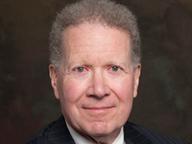Faculty News
—
Prof. Jonathan Haidt's research on morality is referenced
—

Excerpt from The Atlantic -- "We consider many things morally wrong not because they cause immediate harm but because they seem physically or spiritually impure. Psychologist Jonathan Haidt and collaborators have explored reactions to many examples of purity violations, such as eating a dead dog, or signing a piece of paper declaring your soul for sale."
Faculty News
—

Excerpt from The Atlantic -- "We consider many things morally wrong not because they cause immediate harm but because they seem physically or spiritually impure. Psychologist Jonathan Haidt and collaborators have explored reactions to many examples of purity violations, such as eating a dead dog, or signing a piece of paper declaring your soul for sale."


















